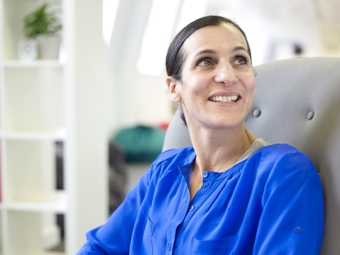Chris Saul on life after Slaughter & May
Chris, you stepped down as a senior partner of Slaughter & May last year; what prompted that decision?
I was elected as senior partner for a five-year term in 2008 and the partners very kindly extended me for an additional three years in 2013. So my term ended on 30th April 2016. The protocol at Slaughter and May is that the senior partner retires from the firm at the end of his or her term to ensure clarity of succession - so that the new senior partner does not have to worry about the possibility of the old senior partner second-guessing decisions. I was also excited to try something new.
How difficult was it to say goodbye to the firm after 39 years?
Very. I love the firm and was incredibly lucky to have grown up there. I am biased of course but there is no firm quite like it in terms of the quality of the work, the sense of family amongst the team and the calibre of the clients. As the journalist, James Ashton, artfully put it, it is a firm which "somehow manages to move with the times without being changed by them".
What do you miss most?
Two things: the camaraderie - being part of a team in which everybody strives for the firm, not themselves individually, to be exceptional. That produces great legal work, great fun (the annual party at the Grosvenor is a blast) and true generosity of spirit; and the chance to see young people come to the firm, or become partners, and fly. The most special days in the year were the days when we welcomed new trainees to the firm and when I got the chance to tell the associates whom we were promoting that they had been elected partners. There is nothing quite like the smile and uninhibited joy of the wonderfully talented person who has given their all to be a partner and has made it. Very special.
You've set up Christopher Saul Associates; can you tell us a bit about the business?
The umbrella notion is to provide advice to businesses at moments of difficulty or transition, not as a lawyer (I am no longer a solicitor) but as a "weathered individual and moderator of differences" who has advised clients in a range of, sometimes stressful, situations and who has been fortunate to have had a role in managing a professional services firm.
What kinds of clients are you working with?
Three kinds of clients: listed company boards (and chairs, senior independent directors, general counsel) facing governance challenges or tough calls around transactions or litigation; family businesses looking at succession issues - how to develop a robust constitution and most deftly pass the baton from generation to generation without a massive fall-out; and professional service firms wrestling with questions around governance and sustainability.
What's the ambition for the firm?
I have been pleased with progress so far, and fortunate to have had some good mandates. The ambition is to continue building the business over the coming years as one which is seen as providing a very personal and empathetic service to businesses at key moments - to be a trusted sounding board or, where there is disagreement, an "oily rag" to help find consensus. I am interested in working both here in the UK and overseas - and India, with its rich array of family-controlled businesses, is a particular overseas focus. I do not see the team growing hugely in size but in my perfect world, I would recruit a couple of younger people, maybe an accountant and a management consultant, to join the business over the next few years.
What's the reaction been like from the legal community, peers and colleagues?
People have been very kind. There is a feeling that my proposition is interesting and is complimentary to the services offered by law firms and financial advisers. So law firms are willing to think of me as a mediator where disputes are brewing (for example within family businesses or in an M&A situation) and financial advisers will recommend me to add perspective where delicate governance challenges are being faced by boards.
What's been the biggest challenge/shift going solo?
It's exciting to be a start up. Really! Whilst I miss the warm embrace of the firm I have found it very stimulating to articulate and refine my proposition and then present it. My two big questions when I started last Autumn were: "Will I be lonely?" and "As an analogue being, how will I cope with the IT?". I have not been lonely. Whilst I miss the camaraderie of the firm and the generous wisdom of colleagues, I am with people every day either working on matters or (sensitively I hope) marketing the proposition. Anne, my wife, is very supportive and I have an amazing PA, Laura - who, happily, is very adept at the IT.
Any regrets?
No. I was unbelievably blessed to be part of Slaughter and May for so long and I owe the firm so much. But, on the "you only get one go" ticket, it is good to be trying something different. As someone sagely said to me: "It's dreams, not memories".
Finally, any words of wisdom for other managing partners who might be thinking of a career change?
Dame Carol Black, the principal at Newnham College Cambridge, was on Desert Island Discs a while back. Kirsty Young asked her what one piece of advice she gave to her students when they were looking to the future. Quick as a flash Dame Carol said - "I tell them to 'have a go'. If you don't go for something you can never have it, you can only have regrets". I would offer that same advice to managing partners thinking of a career change. If you are drawn to something, go for it!








